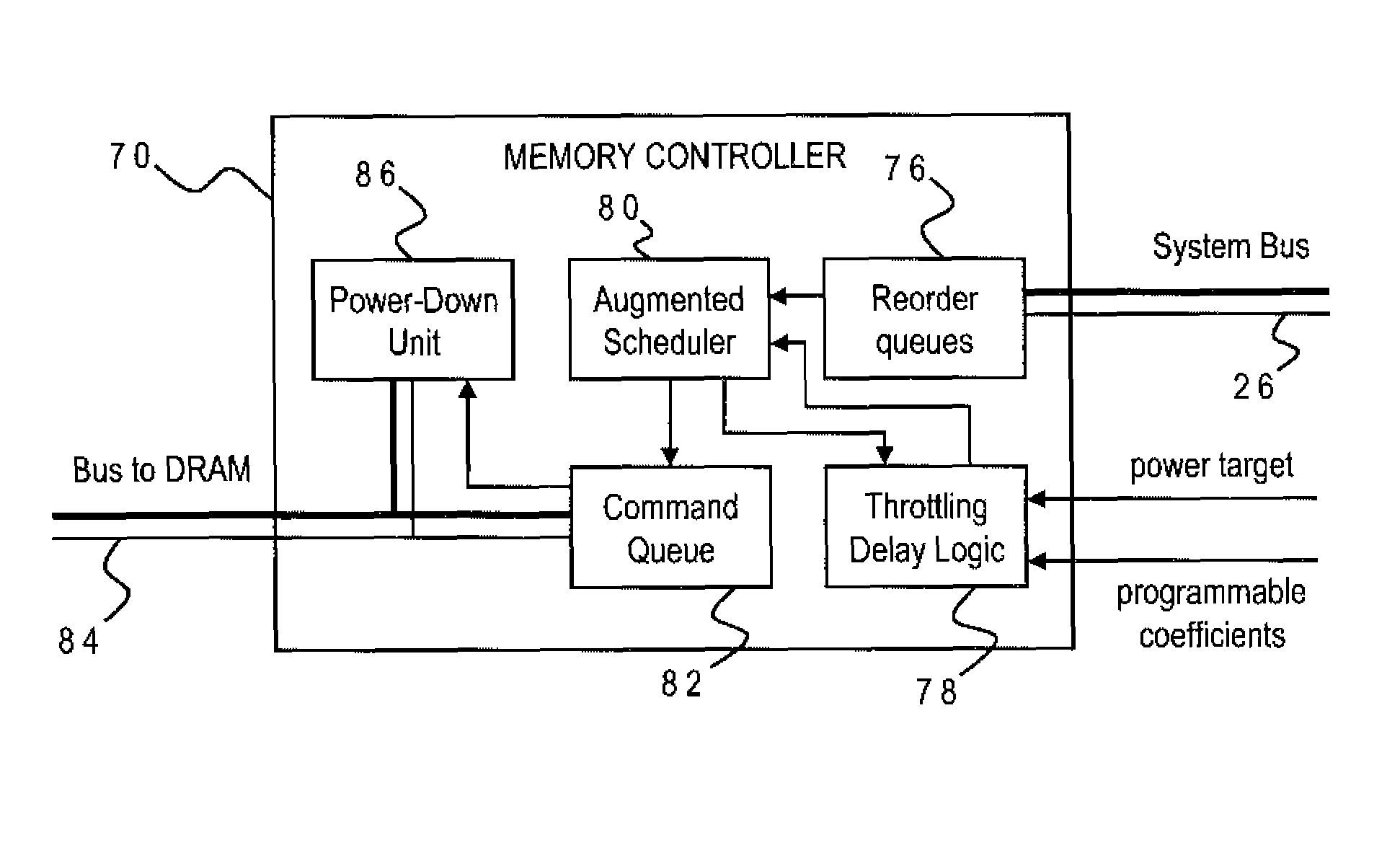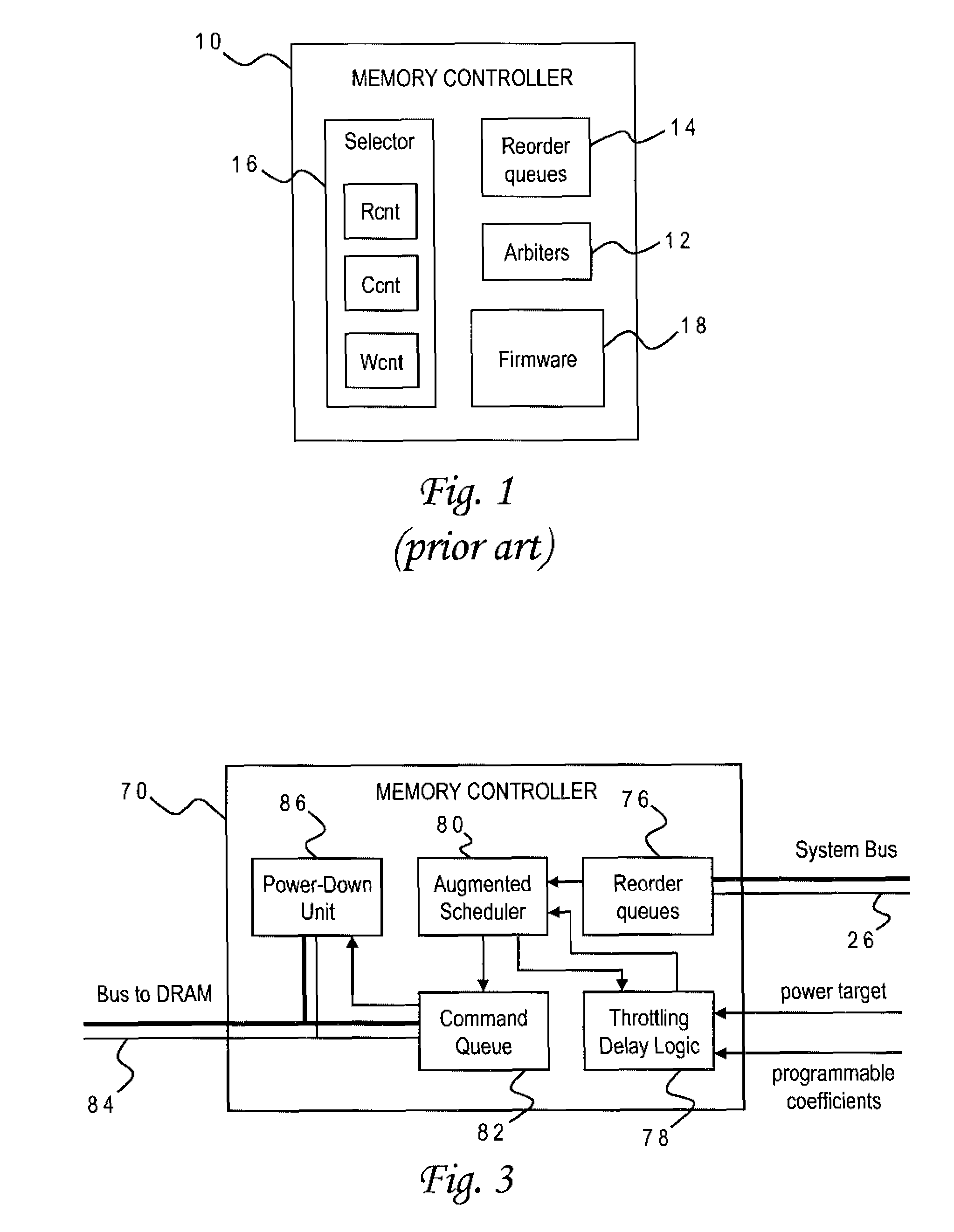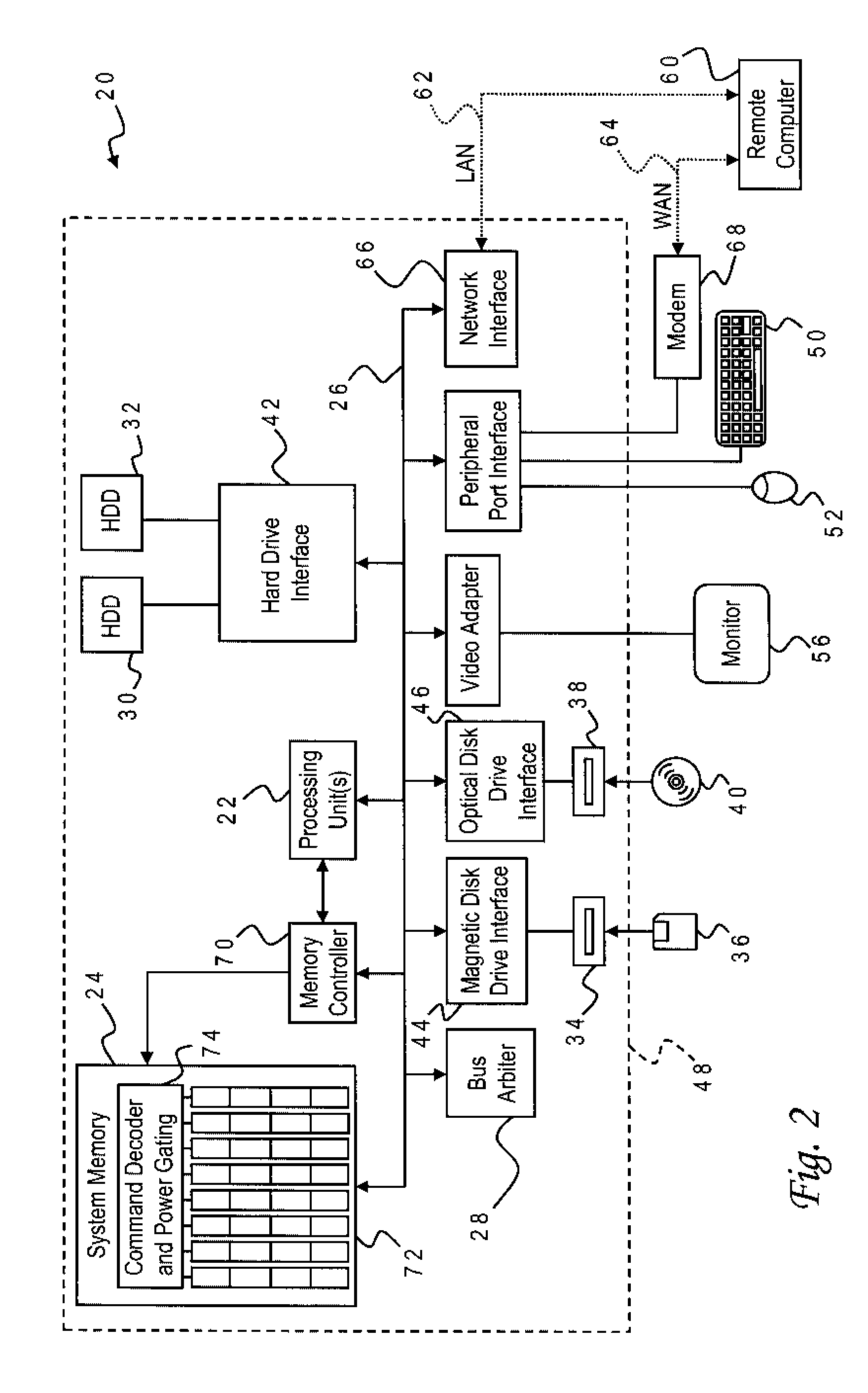DRAM power management in a memory controller
a memory controller and power management technology, applied in the direction of memory architecture accessing/allocation, instruments, sustainable buildings, etc., can solve the problems of heat management problems, particularly pronounced problems, and excessive power usag
- Summary
- Abstract
- Description
- Claims
- Application Information
AI Technical Summary
Benefits of technology
Problems solved by technology
Method used
Image
Examples
Embodiment Construction
)
[0029]The present invention is directed to power management for memory subsystems of data processing systems, and is accordingly usable in a wide variety of such systems including general-purpose computers, distributed computing environments or special-purpose devices. The invention is applicable to memory arrays having various functions such as central (system) memory or local cache memory, and may be further implemented with any type of memory structure but is particularly advantageous for those memory technologies which require higher power consumption like DRAM and variations thereof such as synchronous DRAM (SDRAM).
[0030]With reference now to the figures, and in particular with reference to FIG. 2, there is depicted one embodiment 20 of a computer system constructed in accordance with the present invention. Computer system 20 may for example be a server system adapted to provide computing services across a network such as the Internet. Computer system 20 is generally comprised...
PUM
 Login to View More
Login to View More Abstract
Description
Claims
Application Information
 Login to View More
Login to View More - R&D
- Intellectual Property
- Life Sciences
- Materials
- Tech Scout
- Unparalleled Data Quality
- Higher Quality Content
- 60% Fewer Hallucinations
Browse by: Latest US Patents, China's latest patents, Technical Efficacy Thesaurus, Application Domain, Technology Topic, Popular Technical Reports.
© 2025 PatSnap. All rights reserved.Legal|Privacy policy|Modern Slavery Act Transparency Statement|Sitemap|About US| Contact US: help@patsnap.com



